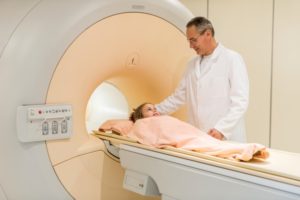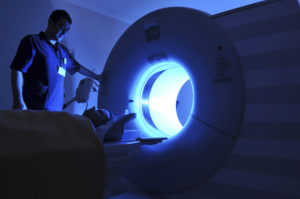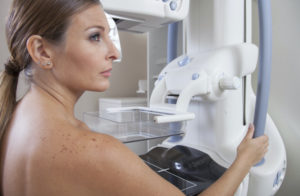
Abbreviated Breast MRI – Know the Basics
Breast MRI is a tremendous tool in the diagnosis of breast cancer. Breast MRI finds more cancers than other imaging tests, but the test has some downsides, mainly in terms of time required to obtain the image, access to the machine and cost.
The indications for a standard breast MRI include the following:
- High risk individuals, meaning those with a greater than 20% lifetime risk of developing breast cancer usually from a family history or personal history of high risk lesions on previous biopsy
- Women who have undergone chest/breast radiation as a young adult or teenager
- Women with a genetic mutation with a risk of breast cancer such as BRCA 1 and 2 and others
- Women with a personal history of breast cancer, particularly when it presents when the woman is premenopausal
- Problem solving for abnormalities found on other breast imaging
- Further assessment of patients with recently diagnosed breast cancer to look for other areas of concern prior to treatment
There is a growing movement to increase the number of women who are screened for breast cancer with breast MRI. One of those options we are now happy to offer at Diagnostic Imaging Centers is an abbreviated breast MRI.
As the name suggests, the abbreviated test is shorter. A conventional breast MRI takes around 45 minutes. The abbreviated breast MRI takes 15 minutes.
Both tests require a patient to lay on their stomach in a special device without compression of the breast tissue. Both tests require an IV injection of a contrast material containing gadolinium, a heavy metal that is usually well-tolerated.

This shorter test is designed for women who do not meet the criteria for a full conventional breast MRI, especially those women with dense breast tissue. Women with dense breast tissue – where the mammogram has more glandular white elements than fatty elements – have a slightly higher risk of breast cancer from the dense tissue. Mammograms in women with dense breast tissue are also harder for radiologists to interpret. For these reasons, additional screening tests may be recommended. This could include breast ultrasound or breast MRI.
An abbreviated breast MRI can be scheduled for women over the age of 40 with the following:
- An order from your primary doctor
- A normal mammogram within the last 12 months
- A risk for breast cancer less than 20% (our offices routinely calculate that risk and report it in your mammogram results)
As always, our goal is to find breast cancer when it is early and most treatable. Personalized screening strategies make sense as all women do not have the same risks or the same type of breast tissue. Expanding the use of breast MRI will help us reach our goals.





